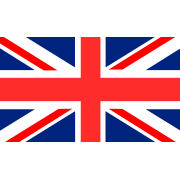General information
VAT Exemptions and Rates: Zero-rated items include food, children’s clothing, books, and energy-saving materials; 5% rates apply to domestic fuel and children’s car seats; exemptions cover private healthcare, financial services, and more. The IFS estimates these cost £100 billion annually in lost revenue, burdening businesses and HMRC with complex compliance, while inefficiently benefiting all income levels.
Private Healthcare: Removing the VAT exemption on private healthcare could raise £2 billion annually from £10 billion in spending, though deductions by providers and employers may reduce net gains.
Financial Services: Post-Brexit, the UK can now impose VAT on banking and insurance, previously EU-exempt. Likely targets include fee-based services (e.g., crypto, fintech, payments), while loans may remain exempt. China’s 6% VAT on financial services offers a model, exempting inter-bank trading and forex.
VAT Registration Threshold Options:
- Lowering to £60,000: Increases registrations, VAT revenue, but raises small business costs and consumer prices.
- Freezing Threshold: Inflation pushes more businesses over £90,000, gradually increasing revenue but adding compliance burdens.
- Tiered Rates: A lower VAT rate (e.g., 5%) for smaller businesses broadens the tax base with less impact, but adds complexity.
- Adjusting Schemes: Reforming Flat Rate or Cash Accounting Schemes simplifies compliance while increasing registrations.
- Expanding Scope: Including exempt/zero-rated activities in turnover calculations brings more businesses into the VAT net.
Challenges: Lowering the threshold may deter small business growth, and the UK’s high threshold is already an OECD outlier. Behavioural changes could limit revenue gains.
Other news from United Kingdom
Understanding VAT in the UK: A Practical Guide for Beginners
 United Kingdom
Author: Ema Stamenković
United Kingdom
Author: Ema Stamenković
VAT is a UK tax on goods and services, with rates ranging from 20% to 0%. Businesses must register if their taxable turnover exceeds £90,000 in the past 12 months, acquire a VAT-registered business as a going concern, or purchase goods or services VAT-free from non-UK countries. Exceptions include unregistered supplies, zero-rated supplies, and exempt supplies. Businesses must maintain accurate VA... Read more



The UK: VAT Error Correction and Refund Notice
 United Kingdom
Author: Ema Stamenković
United Kingdom
Author: Ema Stamenković
This notice outlines how to correct VAT record errors, amend submitted VAT Returns, and claim refunds for overpaid VAT, underclaimed credits, or disputes with HMRC's VAT decisions. Prompt correction prevents penalties and interest. Correcting VAT records immediately, amending invoices, and correcting submitted VAT returns are crucial steps. Penalties apply for careless or deliberate errors, and the process involves reporting errors online or contacting HMRC. Refunds for overpaid VAT, incorrectly charged VAT, and under-claimed input tax can be claimed within 4 years. Reimbursement schemes are available for those who claim refunds but bear VAT costs. Read more
Subscribe to get access to the latest news, documents, webinars and educations.
Already subscriber? Login


UK Tax Updates September 2025
 United Kingdom
Author: Ema Stamenković
United Kingdom
Author: Ema Stamenković
The new Exchequer Secretary to the Treasury, MP, will oversee tax system and administration policy. HMRC updated advisory fuel rates, warned of self-assessment scams, and updated MTD guidance. New Exchequer Secretary to the Treasury An MP (Member of Parliament) is appointed Exchequer Secretary to the Treasury (XST), replacing the last MP, who is now Chief Secretary to the Treasury. The XST overse... Read more



New document was uploaded: The Consumer Contracts Regulations 2013
 United Kingdom
Author: ------------
United Kingdom
Author: ------------
The Consumer Contracts Regulations 2013 require traders to provide clear pre-contract information, grant consumers a 14-day right to cancel distance and off-premises contracts, and set rules for refunds, returns, and delivery. They also regulate services and digital content supply, prohibit hidden charges, and give enforcement authorities powers to ensure compliance. Read more
Subscribe to get access to the latest news, documents, webinars and educations.
Already subscriber? Login


New document was uploaded: The Consumer Rights Act
 United Kingdom
Author: ----------
United Kingdom
Author: ----------
The Consumer Rights Act 2015 sets out statutory rights for goods, digital content, and services, requiring that they be of satisfactory quality, fit for purpose, and as described, with remedies such as repair, replacement, price reduction, or refund if those rights are breached. It also ensures fair contract terms, regulates delivery and guarantees, and strengthens enforcement powers to protect consumers across multiple sectors. Read more
Subscribe to get access to the latest news, documents, webinars and educations.
Already subscriber? Login


New document was uploaded: UK Value Added Tax Act 1994
 United Kingdom
Author: -------------
United Kingdom
Author: -------------
The UK Value Added Tax Act 1994 defines VAT as a tax on goods, services, and imports, setting out registration rules, applicable rates, exemptions, and invoicing and record-keeping obligations. It also governs input tax deductions, payment deadlines, and HMRC’s powers to enforce compliance through assessments, surcharges, and penalties. Read more
Subscribe to get access to the latest news, documents, webinars and educations.
Already subscriber? Login

